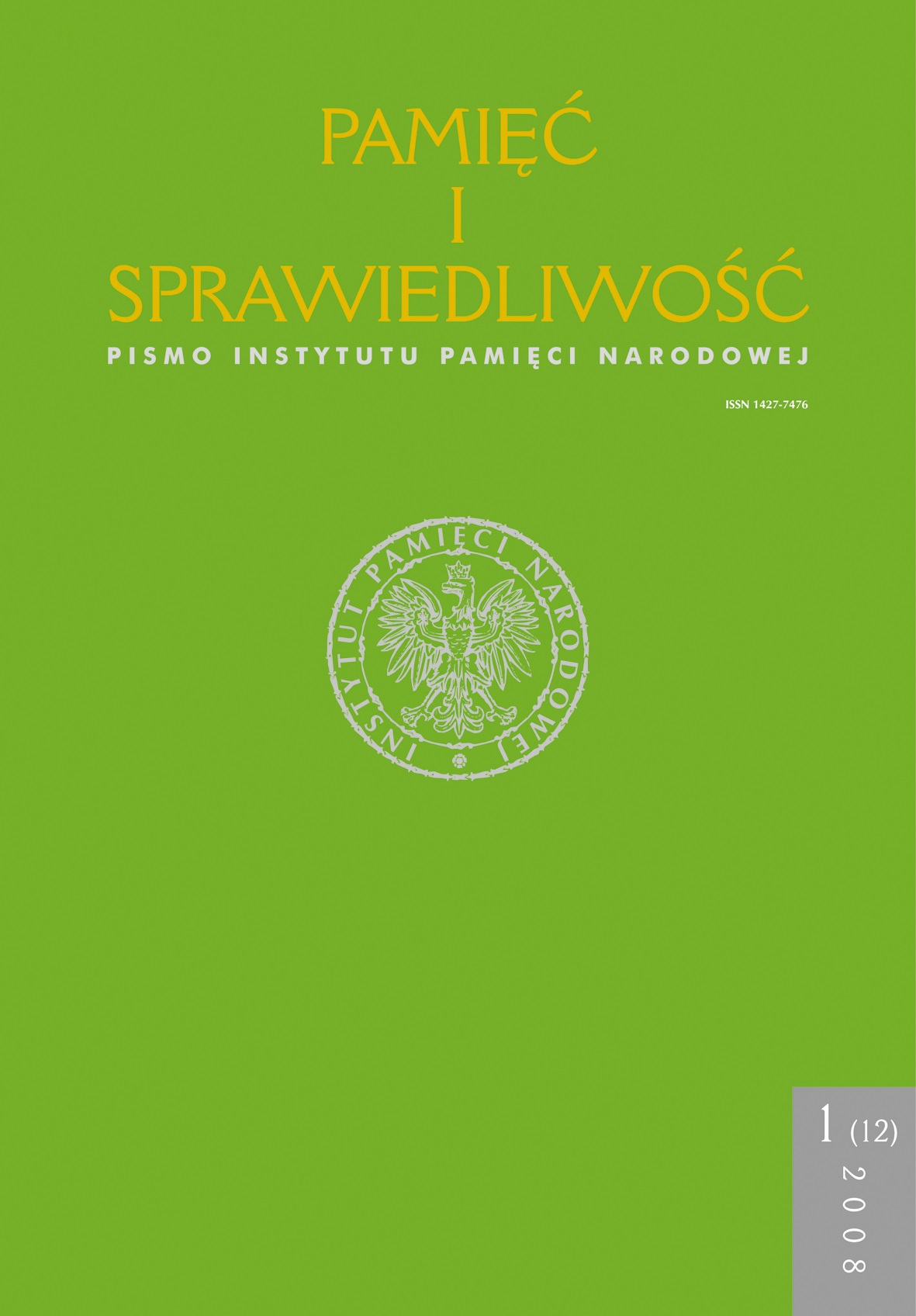Wykluczenie czy samowykluczenie? Trzy aspekty obecności Żydów w wojennymm społeczeństwie polskim na przykładzie 1942 roku
Pamięć i Sprawiedliwość, V. 12 N. 1 (2008), pages: 127-157
Publication date: 2008-06-30
Abstract
Were Polish Jews rightful citizens of the Republic of Poland also during the WWII? Different communities of Jewish conspirers, Bundists, assimilationists, Zionists answered the question positively. Different fractions of the Polish underground including the Polish Underground State perceived that issue in a much different way. In the official enunciations it was stated that the problems of ethnic minorities would be regulated ‘on the basis of traditional freedom and the equality of rights and duties’. However, in the press of political parties and the main titles of the Home Army (AK) and Government Delegate’s Office at Home (Delegatura Rządu RP na Kraj) different solutions to the ‘Jewish question’ were suggested. Jews were not perceived rightful citizens in those considerations which were not free from anti-Semitic disrelishes. The conviction about their strangeness together with the conviction about their small military value resulted in the fact that Polish Jews
in fact were not engaged in the AK.
It happened in the face of the extermination of Jews, which was especially intense in 1942. From the second half of that year the feeling of loneliness and bitterness resulting from the attitude of Poles was building up among Jewish communities.
Jewish historians, Israel Gutman and Szmul Krakowski assess very critically the next aspect of Polish-Jewish relations in 1942, that is to say the reaction of the commanders of the AK and the Delegation to the Holocaust. According to them ‘no initiative of help to Polish Jews was undertaken at least until late autumn of 1942.’ The situation was more complicated, in fact. The Polish Underground State in the first half of 1942 thought, similarly as the Jewish communities, that informing
the world about extermination of Jews itself would decrease the scale of murders. The Government’s Delegate was also convinced, as the Allies, that only the quick ending of the war may stop the terror directed against both Poles and Jews. At the same time, the Polish circles reacted differently to the persecution of Poles by sending suggestions of organizing different retaliation operations. The reactions to the extermination of Jews were restricted solely to passing the information. The scale of the sent dispatches and reports was defi nitely smaller than in the case of ones concerning Poles.
Puoi leggere altri articoli dello stesso autore/i
- Adam Puławski, Postrzeganie żydowskich oddziałów partyzanckich przez Armię Krajową i Delegaturę Rządu RP na Kraj , Pamięć i Sprawiedliwość: V. 4 N. 2 (2003)
- Adam Puławski, „6 tys. [Żydów] co dzień” – „oczywiście na stracenie”. Opowieść o pierwszej depeszy Polskiego Państwa Podziemnego na temat Wielkiej Akcji w getcie warszawskim , Pamięć i Sprawiedliwość: V. 29 N. 1 (2017)
- Adam Puławski, Sowiecki partyzant – polski problem , Pamięć i Sprawiedliwość: V. 9 N. 1 (2006)
 Język Polski
Język Polski
 English
English
 Deutsch
Deutsch
 Français (France)
Français (France)
 Italiano
Italiano
 Русский
Русский


 PDF (Język Polski)
PDF (Język Polski)
